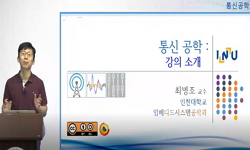This study investigates the effects of overseas training on errors and L1 interference in English essays written by Korean university students. The subjects included 124 students who did not have overseas training and 43 students who had experiences o...
http://chineseinput.net/에서 pinyin(병음)방식으로 중국어를 변환할 수 있습니다.
변환된 중국어를 복사하여 사용하시면 됩니다.
- 中文 을 입력하시려면 zhongwen을 입력하시고 space를누르시면됩니다.
- 北京 을 입력하시려면 beijing을 입력하시고 space를 누르시면 됩니다.

한국 대학생들의 영어 쓰기에 나타난 문법 오류에 관한 연구: = A Study on English Writing Errors of Korean University Students:
한글로보기https://www.riss.kr/link?id=A103653177
- 저자
- 발행기관
- 학술지명
- 권호사항
-
발행연도
2014
-
작성언어
-
-
주제어
error analysis ; interlingual error ; transfer ; intralingual error ; L1 interference ; developmental errors ; overseas training ; 오류분석 ; 언어간 오류 ; 전이 ; 언어내 오류 ; 발달오류 ; 제1언어 간섭
-
KDC
740
-
등재정보
KCI등재
-
자료형태
학술저널
-
수록면
159-185(27쪽)
- 제공처
- 소장기관
-
0
상세조회 -
0
다운로드
부가정보
다국어 초록 (Multilingual Abstract)
This study investigates the effects of overseas training on errors and L1 interference in English essays written by Korean university students. The subjects included 124 students who did not have overseas training and 43 students who had experiences of studying in English-speaking countries more than one year. They were asked to write a one-page self-introductory essay at the beginning of each semester. Errors were analyzed according to a list of grammatical categories. The essay length and error rates were compared. The study also makes prognostic suggestions for teaching writing in Korea by diagnosing the sources of errors. It was found that overseas training had positive effects on the essay length and error rates. It was also effective in reducing awkward expressions. The error rates directly attributable to L1 were 8.6% for the overseas experience group and 16.4% for the non-overseas experience group. Error rates attributable to L1 based on the Fluctuation Hypothesis were 45.7% and 51.5% for the overseas and non-overseas experience group, respectively. Students made persistent errors in omitting articles, prepositions, the plural -s, and in using awkward vocabulary and expressions resulting from translation of Korean. The data shows that special prognostic training is necessary to reduce the typical errors.
목차 (Table of Contents)
- 1. 서론
- 2. 문헌 연구
- 3. 연구 방법
- 4. 결과 및 논의
- 5. 결론 및 제언
- 1. 서론
- 2. 문헌 연구
- 3. 연구 방법
- 4. 결과 및 논의
- 5. 결론 및 제언
- 참고문헌
동일학술지(권/호) 다른 논문
-
- 현대문법학회
- 유은정(Eun Jung You)
- 2014
- KCI등재
-
New Englishes와 AAVE에 나타나는 영형계사의 생성에 관한 연구
- 현대문법학회
- 오명기(Myung Ki Oh)
- 2014
- KCI등재
-
Positional Effects of Phonetic Substances:
- 현대문법학회
- Tae Jin Yoon
- 2014
- KCI등재
-
Grammar Instruction for Korean Young Learners of English : Implicit or Explicit?
- 현대문법학회
- Moon Hee Do
- 2014
- KCI등재




 스콜라
스콜라







